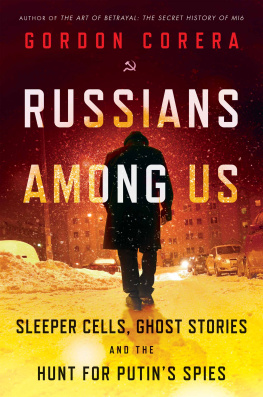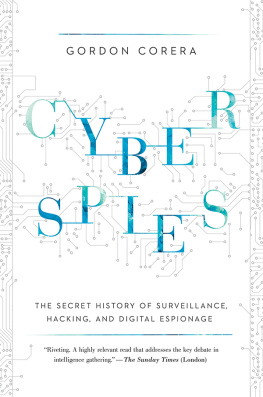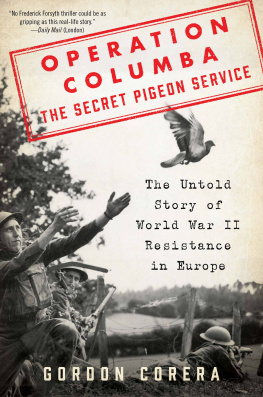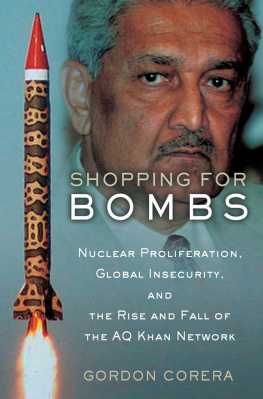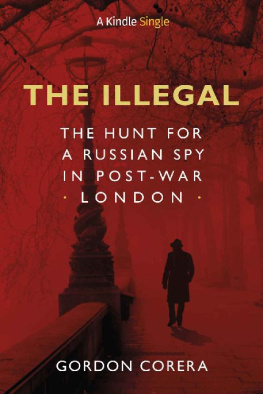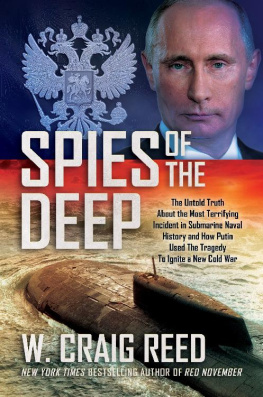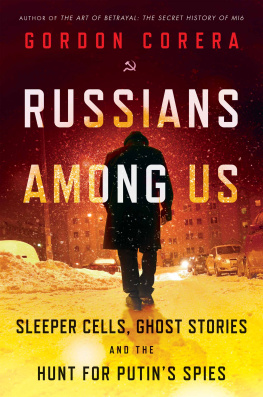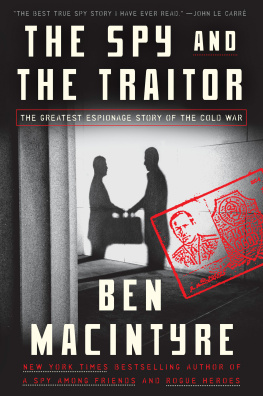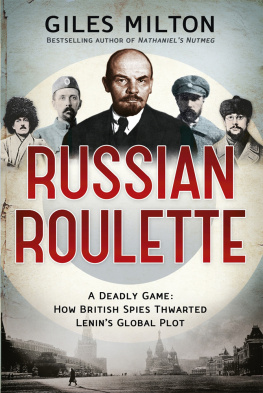For Jane
Contents
I T WAS HUMID enough for haze to rise off the tarmac as fourteen people crossed paths for a few brief moments at Vienna airport on July 9, 2010. The fourteenall accused of being spieswere changing planes but also exchanging lives.
Ten were going one way. They had been living secretly undercover in Americas suburbs, and they were now on their way to Russia.
AMONG THEM WERE a KGB-trained husband and wife from Boston who had stolen the identities of dead Canadian babies and whose own children were now sitting bewildered in Moscow. A New Jersey couple whose grumpy husband had made way for his wife to take the lead in their joint spy venture. Her success in getting close to power had set off alarm bells in Washington. Another pair had moved from Seattle to Americas capital to further their spying career. But as with the others, almost every moment of their life in America had been owned by the FBI. The last of the four couples was the oddest: a retired Russian spy and his Peruvian wife. She claimed she had not even known her husbands real name despite decades of marriage.
Then there was a young man who had not stolen anyones identity but had fallen into an FBI trap while he was working his way into Washingtons circles of powerthe trajectory of a new breed of spy. And last, but not least, there was the twenty-something redhead who would gather tabloid attention thanks to a party lifestyle in Manhattan and London and nude pictures splashed over the papers (pictures she had spent the plane ride complaining to the FBI about).
All ten had been betrayed by a man they had known and trusted and who days earlier had made a dramatic escape from Moscow to the West.
Arriving on a plane from Moscow and heading in the other direction were four Russian men. Two of thembound for Americawere still feeling the effects of the beatings they had been subjected to in the previous days. One had helped catch a traitor in the CIA and the agency had been desperate to get him out for years. The other had played a role in catching a traitor in the FBI but his subsequent fate was the cause of regret in the CIA. Two other Russians were heading for Britain. One was a sullen figure, angry at being forced to confess to being a spy when he said he had never been one. He was the source of guilt for Britains MI6. The last man, a tough former paratrooper, really had been a spy for MI6. Eight years after the Vienna swap, his former colleagues in Russian military intelligence would smear a deadly nerve agent on his front-door handle, spiraling relations between Russia and the West into an even darker place than anyone would have imagined that sunny July day.
WATCHING THE TWO groups closely was a small group of intelligence officers from the West and Russia. Many had spent their entire professional careers battling each other in the shadows. Now they were just yards apart. For years, even within their own intelligence bureaucracies they had been regarded as dinosaursageing prizefighters still throwing punches at each other in the ring even though the crowd had long departed. One of the Russians in particular had devoted much of the past quarter of a century to entangling his adversaries in a web of deceit. His American adversaries thought that at long last they had the better of him. In Vienna, one side seemed to have won, the other to have lost. But that only made sense if you thought this was the end. It was not.
That evening Vice President Joe Biden appeared on The Tonight Show on American TV. The spy swap was the talk of the town. Do we have any spies that hot? Jay Leno asked Biden, referring, inevitably, to the redheaded woman sent back to Moscow. Let me be clearit wasnt my idea to send her back, Biden said to laughter. That was true. He was one of those who had opposed the plan to arrest the Russians and engineer a swap but had been overruled after a heated debate in the White House Situation Room. His comments fit in with a deliberate strategy from Washington to play down the significance of what had just taken place in Viennato treat it as an inconsequential event. And for the world watching it all seemed like some kind of bizarre retro-throwback, a hangover from the past, a last hurrah of people who could not quite let go of the Cold War. That was a mistake.
T HIS IS A book about ghosts. The ghosts of spies past have haunted relations between Russia and the West even as the Cold War ended. The Cold War was fought through espionage and defined by it in the public mind. But when that conflict suddenly ended, the spying did not stop. Repeated cycles of treachery and the hunt for those responsible were an obsession for a small band of spies and spy-catchers on both sides. Neither could let go. And this obsession mattered, since the spy wars have continued to shape relations between the two sides over the decades, playing their role in the rise of Vladimir Putin and his drive for revenge.
Ghost Stories was also the code name of the decade-long FBI investigation into Russians living under deep cover as sleepers in America. It was a fitting title, since these were people who had been resurrected from the dead in graveyards as part of Russias illegals program. The story of these spies and those who pursued them is told here for the first time in detail but set against the broader story of espionage between Russia and the West. A confession: I was one of those reporting on the events surrounding the Vienna swap who thought it was all a bit peculiar. Hindsight is a wonderful thing, and this book sets out to explain why those events were not just the last echoes of the past but also foreshadowed a darker future. The scene at the Vienna airport offered a snapshot of a normally hidden Russian intelligence program, and the blinding flash of publicity illuminated both the tail end of a program running from deep in the Cold War and the beginnings of a new Russian strategy that would replace it.
One veteran of the CIA shakes his head in awe as he ponders how his old adversary has the mind-set to send people to live as sleepers in another country for decades, patiently burrowing into the heart of their target, waiting for years to act. This was evidence of the Russians persistence and patience in targeting its adversaryqualities that have not always been appreciated. Meanwhile, on the Western side, the focus on Russia from the end of the Cold War onward has been hazy and erratic.
As a result, the illegals arrested in 2010 were portrayed as something of an oddity and certainly not dangerous. They successfully infiltrated neighborhoods, cocktail parties and the PTA, one of their lawyers said, mocking the charges his client faced. This was a narrative deliberately reinforced at the time by the US administration, which was in the middle of an effort to reset relations with Russia. Seeing Russian spies either as figures of fun or as all-powerful is a mistake. The reality was that the illegals were involved in building networks and putting down roots that could have resulted in long-term damage. A previous generation of Russian illegals in the 1930s and 1940s had played a key role in helping steal American atomic secrets and eating away at the heart of British intelligence from the inside. There was real risk from their work and their mission reveals much about how Moscow seesand sometimes misunderstandsthe West.
But they were also people. There are complex personal stories at the heart of this tale. Imagine being a child brought up in suburban America, pledging allegiance at school and running lemonade stalls for your neighbors, but then coming home one day from a pool party to find the FBI all over your house. And then being informed that your parents were not Americans but Russians. And then two weeks later being on a plane to Moscow. It is no wonder that the work of the illegals became the inspiration for
Next page
